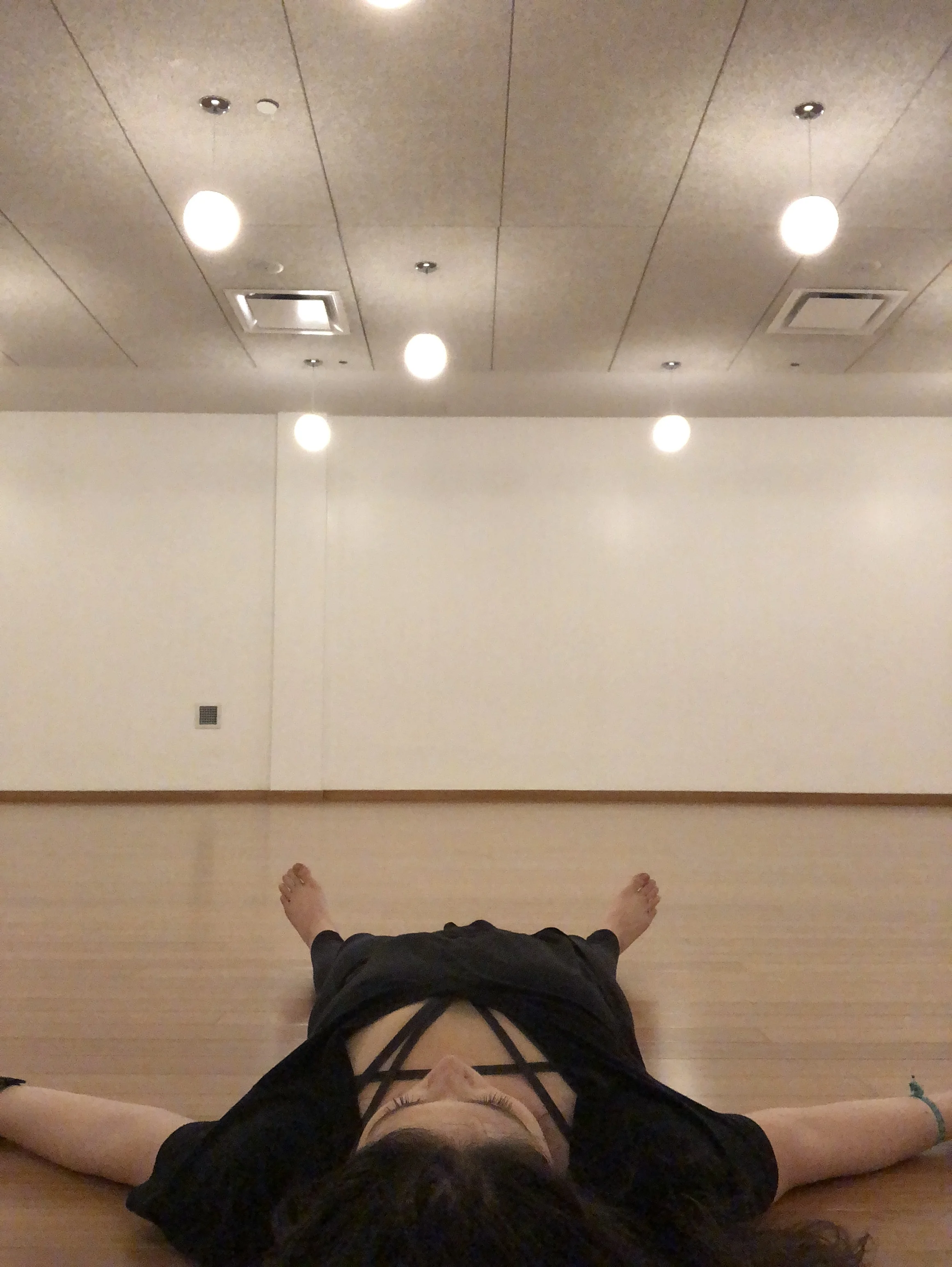{Hey I’m a yoga teacher not a medical professional – if you’re trying to lose/gain weight, making adjustments to your diet or lifestyle including a new yoga practice you should always consult your doctor first. Ok?}
As a hot yoga teacher, I can’t tell you how many times people come up to me and ask me if yoga’s going to result in weight loss or if they’re going to gain more muscle mass. “How many calories do you think this class burned?” is might as well be a Power or Flow FAQ. I can tell you – there aren’t very many yoga teachers that like addressing the topic, myself included. The topic of weight can bring up a lot of reactions in both teachers and students alike.
Now you might assume because I’ve written this post I’m advocating for a “one size for everyone” yoga body which is NOT AT ALL where I’m coming from here. If you’re concerned, your health is something only a qualified medical professional can truly evaluate (not a yoga teacher). Athletes and healthy bodies come in ALL shapes and sizes. Baseball players, wrestlers, basketball players, golfers, tennis pros, and long distance runners all look completely different. Can you tell based on looks how good someone’s blood pressure is? No. I’ve looked ripped at the expense of my health (hello coffee instead of sleep and diet soda instead of food!). I have more body fat now and I’m definitely happier. Healthy happens on the inside – aesthetics are a poor measure in my line of work of one’s fitness or spiritual capacity.
So that brings us back to our original theme – how does yoga help if you’re looking to manage your weight?
Yoga is a stress buster. Have you ever emotionally eaten before? I have… And it makes sense why too. Acute stressors activate the sympathetic nervous system – the fight or flight response in the body which suppresses digestion and appetite in the short term and increases muscle tension to help you to run in a survival situation (not as useful when you get a “shit-o-gram” from your boss but evolution doesn’t have an I.T. call in centre). If you’re a meal skipper, watch your reactions to acutely stressful situations. Chronic stress elevates cortisol (a stress hormone) levels making your body’s natural response to seek sugar and fats in preparation for famine (a chronic stressor to our ancestors before the advent of Loblaws). If you want to eat cupcakes and PB and J at every meal – don’t beat yourself up. If you’re too stressed to remember to eat meals everyday – don’t be frustrated. Look to find a way to treat yourself to some de-stress time – and yoga’s a great way to do that (yes even low calorie burns like restorative or yin, even with cupcakes and PB and J). You’ll find the less stressed you are, the easier it becomes to find balance.
Yoga helps get you in touch with your body. I remember when I first started practicing there was always a cue to “listen to your body.” My reaction would always be not to listen but to think about how my body feels. Have you ever eaten when you’re not feeling hungry? Have you ever not eaten when you’re feeling hungry? It’s because “mind”. Your mind can talk you into pretty much anything if you aren’t aware of it. Yoga is mind-body exercise that will help you to decipher what is mind and what is body and instead of pitting one against the other (mind says eat when body says I’m good thanks, body says eat mind says I’m good thanks). By getting in touch with how your body feels, you’ll notice how it responds to exercise, what you eat, and the other stuff that comes up in your life and satisfy your own unique needs when it comes to your choices. Get your mind and body working together you’ll experience way more balance, way less inner turmoil, and generally be happier whatever happens or doesn’t happen for you in life.
Yoga reminds you to see reality as it is, not as your mind interprets it. Remember that our associations, reactions and attitudes to do with weight are programmed into us by society – nothing more nothing less. Dogs and cats don’t get bummed about their weight – they get bummed when they perceive that they don’t feel good. The reality is your weight doesn’t dictate your worth as a human being and whatever your body shape is there’s an example proving just that (my personal fave was Adele saying “Music is made for ears not for eyes”). At the end of the day, objectively you’re looking to adjust the relativity of your mass to gravity’s pull (that’s actually what weight is!). Maybe you’re looking to improve your health, maybe you like looking a certain way. Whatever your reasons or intentions are for making a change you have the option to find ways to not suffer in the process. Make sure your choices are what’s right for you and take the shame out of feeling like you “should” be a certain way to fit society’s mold.
Yoga helps you enjoy the present moment. At the end of the day being happy and enjoying what you’re doing will help you no matter where you are in your process (regardless of whether that’s aesthetic, health or weight centred). If you’re able to enjoy what you are doing right here and now, you’ll be able to find ease no matter how much your process may challenge you. Practising being fully in the moment on the mat, will help you be fully in the moment in your life. Less impulsiveness will mean you are operating out of a place higher than survival (remember that fight of flight we talked about earlier?) be better equipped to love yourself no matter what, and get connected to what makes you truly amazing – your spirit.



